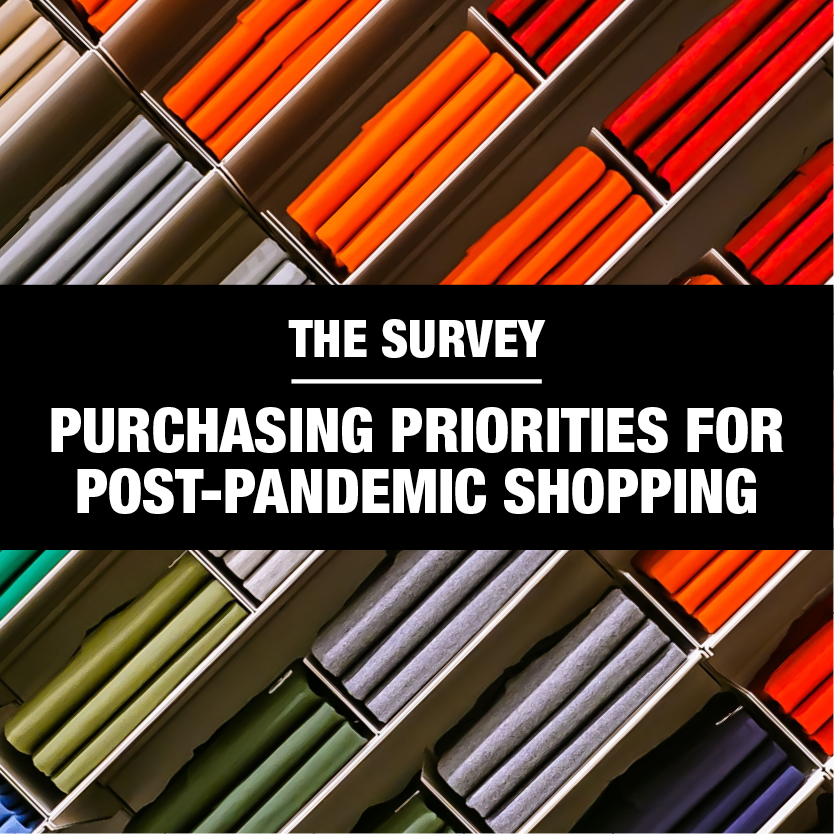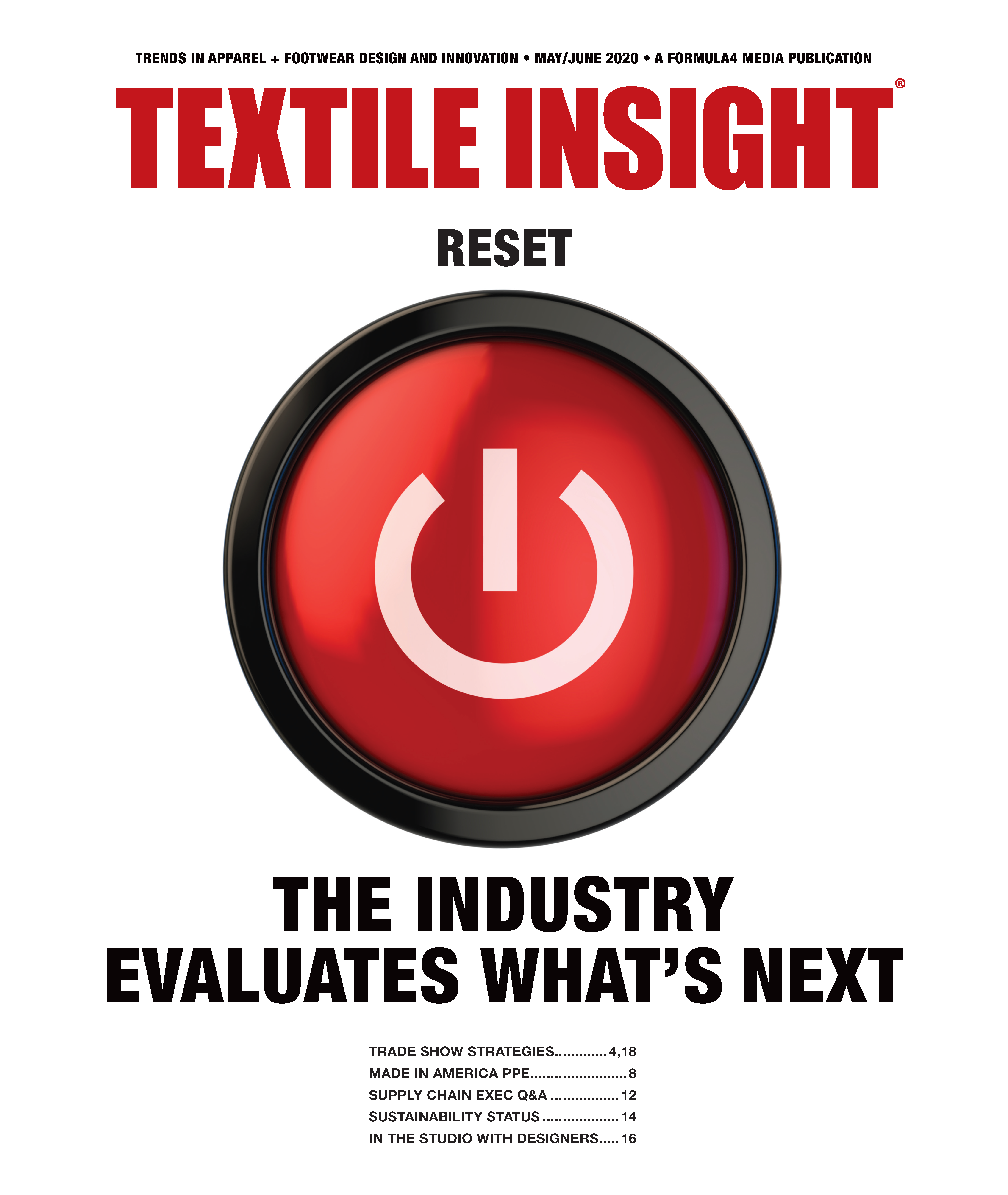
Consumers are saying “yes” to tech, are keen on natural, eco-friendly fibers and are likely to seek Made-in-USA apparel. These are among the purchasing priorities that may shape consumers’ buying habits going forward as COVID-19 restrictions lift and individuals resume shopping routines. Staying connected with family and colleagues during isolation is translating to increased consumer awareness around smart textiles that feature conductive yarns developed to sync with iPhone apps.
When asked about incorporating smart textiles into their everyday wardrobe, 87 percent of our survey respondents answered positively.Natural fibers also look to get a boost, as the majority of respondents — 55 percent —believe that cotton, wool and hemp are “cleaner” and “safer” fabric choices. Along this same line of thinking, respondents report that purchasing sustainable or “eco-friendly” apparel and footwear has become more important. This shift in outlook reflects a greater appreciation of nature and environmental protection by everyone, not just survey takers, as a result of the pandemic experience.
Buying products made closer to home is another broad takeaway from COVID-19’s impact. This is clear from respondents’ significant show of support for American made products — tallied at 89 percent — influenced by the role domestic manufacturers played in providing needed PPE products in recent months, compared to 33 percent of respondents not swayed by that action.
The survey, conducted by MESH01, included 401 respondents, men and women, with an average age of 35 years old.











